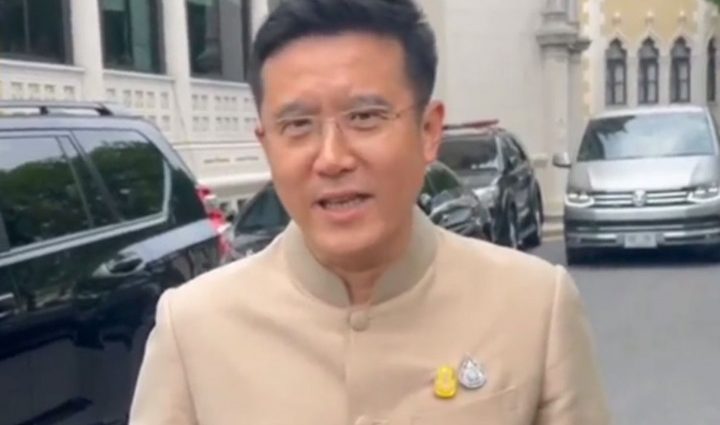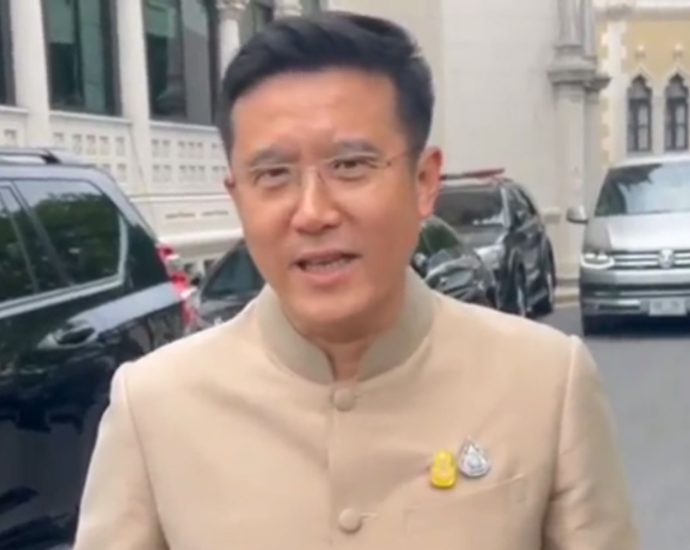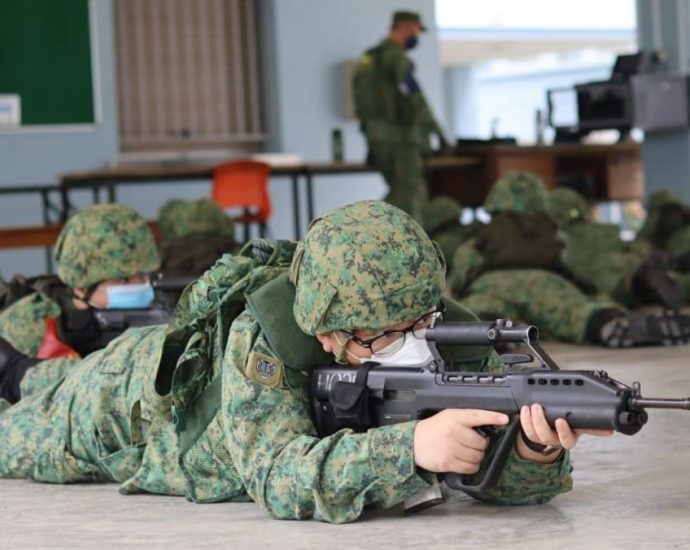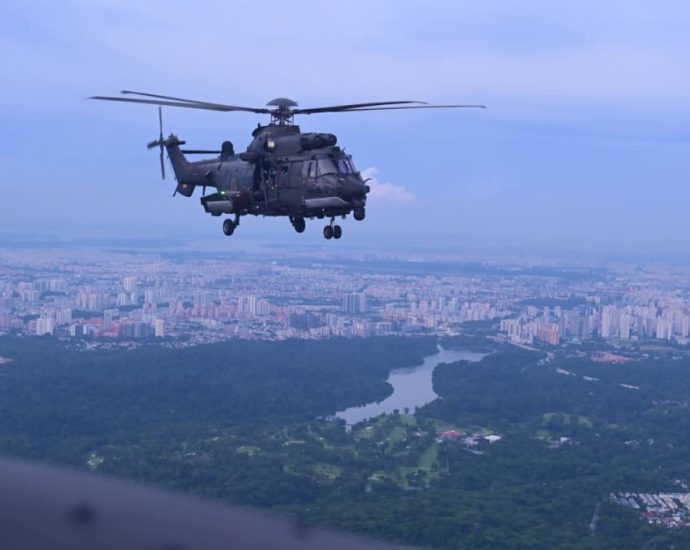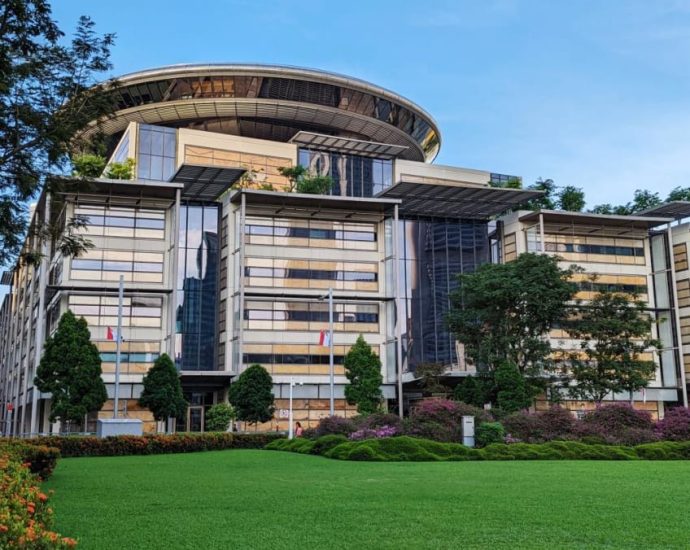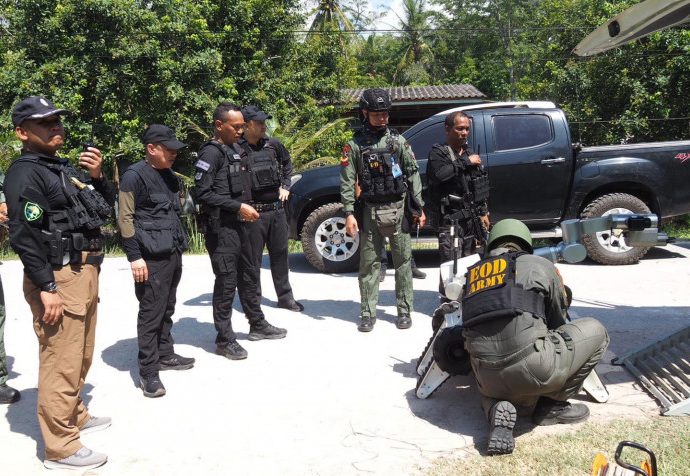Whip will ensure caretaker govt-aligned MPs vote for right PM
Lack of communication seen in vote for deputy speaker on Tuesday, says Palang Pracharath deputy leader

The caretaker government will set up a new whip drawn from political parties in the former coalition to ensure their MPs toe the line in voting for the next prime minister on July 13.
Outgoing Digital Economy and Society Minister Chaiwut Thanakamanusorn revealed the plan on Wednesday.
He rejected speculation that the outgoing-government coalition parties were divided following voting for the first deputy speaker on Tuesday. He said there were no talks ahead of the vote because there were no party whips to enforce discipline.
Padipat Suntiphada, a Move Forward Party MP for Phitsanulok, received 312 votes and was elected first deputy speaker of the House of Representatives. His challenger for the post was Witthaya Kaewparadai, a list-MP of the United Thai Nation Party (UTN) who received 105 votes.
Some political commentators viewed Mr Witthaya’s candidacy for the deputy speaker’s post as a test-run by the outgoing coalition, in case it decides to put forward a prime ministerial candidate to challenge Pita Limjaroenrat of the Move Forward Party (MFP).
There were 496 membersin the chamber for the voting. There were 77 abstentions and two invalid ballots. The UTN and other parties expected to be in the new opposition bloc had a combined 187 votes to distribute. Bhumjaithai Party MPs abstained from voting.
Mr Chaiwut denied that a meeting of caretaker cabinet ministers and outgoing Prime Minister Prayut Chan-o-cha at Government House on Wednesday was indicative of political manoeuvring in the wake of Tuesday’s voting in parliament.
He said Tuesday’s vote did not reflect any division among the old government coalition parties. As there was no whip, the parties had not held any talks. He insisted that all parties in the former government remained united.
Most of the 77 abstentions in the vote for first deputy speaker were by Bhumjaithai Party MPs. Mr Chaiwut was asked if Bhumjaithai leader Anutin Charnvirakul had explained the move to Gen Prayut. He replied that the prime minister was not taking the issue seriously, reiterating that there had been no talks among the parties before the vote.
In any case, Mr Chaiwut now believes it is necessary to set up a whip comprising the existing coalition parties. It would be in place before parliament meets on July 13 to vote for the prime minister, he said.
He denied that setting up a whip was an idea floated by Gen Prayut, saying the prime minister did not get involved in parliamentary matters.
Caretaker Labour Minister Suchart Chomklin, a deputy leader of the UTN, also denied there was any special agenda after his meeting with Gen Prayut, the party’s prime ministerial candidate, at Government House on Wednesday.
Gen Prayut had just invited him in for coffee. There were also other cabinet ministers there, he added.
Meanwhile, speculation persists that the old coalition parties are looking for a way to prevent Move Forward from forming a government with Mr Pita at its head.
Such a scenario would involve Pheu Thai abandoning the MFP-led coalition and teaming up with Bhumjaithai and the Palang Pracharath Party (PPRP). They would then attempt to form a government with PPRP leader Gen Prawit Wongsuwon as prime minister.
Mr Chaiwut, who is the deputy PPRP leader, denied any knowledge pf such a plan, saying he had never heard about it. Gen Prawit has also brushed aside such speculation in recent days.
Whip will ensure govt-aligned MPs vote for right PM

The caretaker government will set up a new whip drawn from political parties in the former coalition to ensure their MPs toe the line in voting for the next prime minister on July 13.
Outgoing Digital Economy and Society Minister Chaiwut Thanakamanusorn unveiled the plan on Wednesday.
He rejected speculation the outgoing-government coalition parties were divided following voting for the first deputy speaker on Tuesday. He said there were no talks ahead of the vote because there were no party whips to enforce discipline.
Move Forward Party MP for Phitsanulok Padipat Suntiphada received 312 votes and was elected first deputy speaker of the House of Representatives on Tuesday. His challenger for the post was Witthaya Kaewparadai, a list-MP of the United Thai Nation Party (UTN) who received 105 votes.
There were 496 members in the chamber for the voting. There were 77 abstentions and two invalid ballots. The UTN and other parties expected to be in the new opposition bloc had a combined 187 votes to disitribute. Bhumjaithai Party MPs abstained from voting.
Mr Chaiwut denied that a meeting of caretaker cabinet ministers and outgoing Prime Minister Prayut Chan-o-cha at Government House on Wednesday was indicative of political manoeuvring in the wake of Tuesday’s voting in parliament.
He said Tuesday’s vote did not reflect any division among the old government coalition parties. As there was no whip, the parties had not held any talks. He insisted all parties in the former government remained united.
Asked whether Bhumjaithai leader and caretaker Public Health Minister Anutin Charnvirakul had explained his MPs’ abstentions to Gen Prayut, Mr Chaiwut said the prime minister was not taking the issue seriously, reiterating that there had been no talks among the coalition parties before the vote.
He saw it as necessary to set up a whip comprising the existing coalition parties. It would be in place before the parliament meets on July 13 to vote on the next prime mnister, he said. It would be announced.
He denied that setting up the whip was floated by Gen Prayut, saying the prime minister did not get involved in parliamentary matters.
Caretaker Labour Minister Suchart Chomklin, a deputy leader of the UTN, also denied there was any special agenda after his meeting with Gen Prayuth, the party’s prime ministerial candidate, at Government House on Wednesday.
Gen Prayuth had just invited him in for coffee. There were also other cabinet ministers there, he added.
Parliament passes law targeting online content used for scams, malicious cyber activity

COMPARISONS WITH POFMA
Mr Singh on Wednesday told the House that the Workers’ Party (WP) supports the Bill’s implementation if it focuses on targeting scams and offences that cause financial and other harm.
But he also highlighted the Protection from Online Falsehoods and Manipulation Act (POFMA), which WP did not support, as it concerned online content.
He noted that a correction direction was issued to Asia Sentinel, a California-registered publication, over a May 24 article that contained several falsehoods. Correction notices were to be situated at the top of the article and the top of the main page of the website.
When Asia Sentinel did not fully comply, MCI said on Jun 2 that internet access service providers would be ordered to block the site for end-users in Singapore and the access blocking orders would only be cancelled if the publication subsequently complied with the “full requirements” of the correction direction.
Mr Singh found it “draconian” to expect a news website to place a correction direction at the top of the main page of the website. It “should be sufficient”, he said, for the correction notice to be at the top of the article in question if the government’s concern is that Singaporeans can read the government’s point of view.
“Surely that smacks of the government wanting to punish the publishers of the website rather than merely wanting to correct falsehoods in a specific article,” he added.
“The Singapore government must have many tools at its disposal to ensure that its viewpoint is available to Singaporeans. Is it really in the best interest of Singapore citizens that the government blocks not only an article the government deems false, but an entire publication?”
Responding to Mr Singh’s views, Mrs Teo said it was “not quite a correct characterisation” to say “the government decides what is truth” under POFMA.
“Mr Singh knows very well that POFMA deals with false statements of fact. These false statements of facts can be proven. There has to be a basis for making those allegations,” she said.
People are free to continue to make opinions, she added. “But if you say something that is factually incorrect, it is carried online, it can go very far and it has public interest, then that’s where POFMA could be considered.”
While Mrs Teo did not address the Asia Sentinel case, she noted that the vast majority of POFMA directions have been fully complied with and the original content remains fully accessible.
Mr Singh said the Asia Sentinel article and website are “no longer accessible by computers and smartphones with Singapore IP addresses”.
However, checks by CNA on Wednesday afternoon revealed that both the website and article could still be accessed. There was a correction notice at the top of the article in question, as well as on the main page under a sidebar titled Editor’s Notes.
Most people in Singapore still support National Service, but fewer view it as important for job skills: Study

The study also showed that NS was still viewed as “highly important” for other areas such as national defence, building commitment towards Singapore and promoting understanding between people from different backgrounds.
It is also seen as significant for personal character development, including instilling discipline and values.
NECESSARY FOR DEFENCE
Almost all respondents (98 per cent) agree that NS is necessary for Singapore’s defence, with the proportion of those who strongly agree to this increasing to 57 per cent last year from 42 per cent in 2013.
“An agreement of 98 per cent … is very rare and speaks to the belief and support for the institution of NS,” said Dr Chew during a media briefing on Wednesday.
Nearly all respondents (97 per cent) agreed that NS will continue to be important for Singapore in the future. The proportion of those who strongly agreed about NS’ importance to Singapore increased to 57 per cent from 33 per cent decade ago.
Recent heightened geopolitical tensions such as the Russia-Ukraine war might have led to perceptions that NS will continue to be important for Singapore, the study found.
“Several focus group participants also shared that these tensions and certainty serve as a reminder that the ability to defend ourselves is very important and we need NS as a deterrent against external threats,” Dr Chew added.
Strong support from family and employers for national servicemen’s NS commitments was also observed.
More than nine in 10 (96 per cent) national servicemen felt that their families were supportive, while 95 per cent of employed national servicemen also felt the same of their employers.
However, during focus groups, national servicemen also reasoned that employers will have to show support due to the mandatory nature of their reservist commitments.
Close to nine in 10 (89 per cent) respondents said that they felt proud that their family members are serving or have served NS. The study also found that respondents felt that NS helped to enhance national servicemen’s maturity and confidence.
On training safety, 94 per cent of national servicemen were confident that NS training is conducted safely.
The proportion of respondents that strongly agreed training is conducted safely rose from 15 per cent in the previous study to 23 per cent.
Focus groups also highlighted that the positive NS experiences are a result of increased focus on safety and health.
Six aerial segments to look out for during NDP 2023

From 5.40pm to 6.10pm, these aircraft will fly in the Jurong West, Woodlands, Toa Payoh, Tampines and Bedok area.
Lieutenant (LTA) Hanson Lim from 112 Squadron said flying the MRTT has its challenges because it will be travelling at a faster speed than normal since it is moving in formation with fighter jets.
“Our turn radius will be much bigger, and being a bigger aircraft, we are not as manoeuvrable as the fighter aircraft,” he said, adding that Singapore’s airspace is tight.
Major (MAJ) Melcolm Huang, an F-16D+ Pilot from 145 Squadron, said he flies over his home in Pasir Ris during rehearsals. His wife usually brings his six-month-old son to the balcony to watch as the planes go by.
“My wife would be taking photos, recording videos. Hopefully one day I’ll get to show him those images, and inspire him in future,” he said.
Philippines accuses China of more ‘harassment’ near disputed reef
MANILA: The Philippines on Wednesday (Jul 5) accused China’s coast guard of harassment, obstruction and “dangerous manoeuvres” against its vessels, after another incident near a strategic feature of the South China Sea that has become a flashpoint between them. Philippine coast guard boats were assisting a naval operation on JunContinue Reading
Man on trial for murdering 5-year-old daughter, allegedly confined her in toilet for months
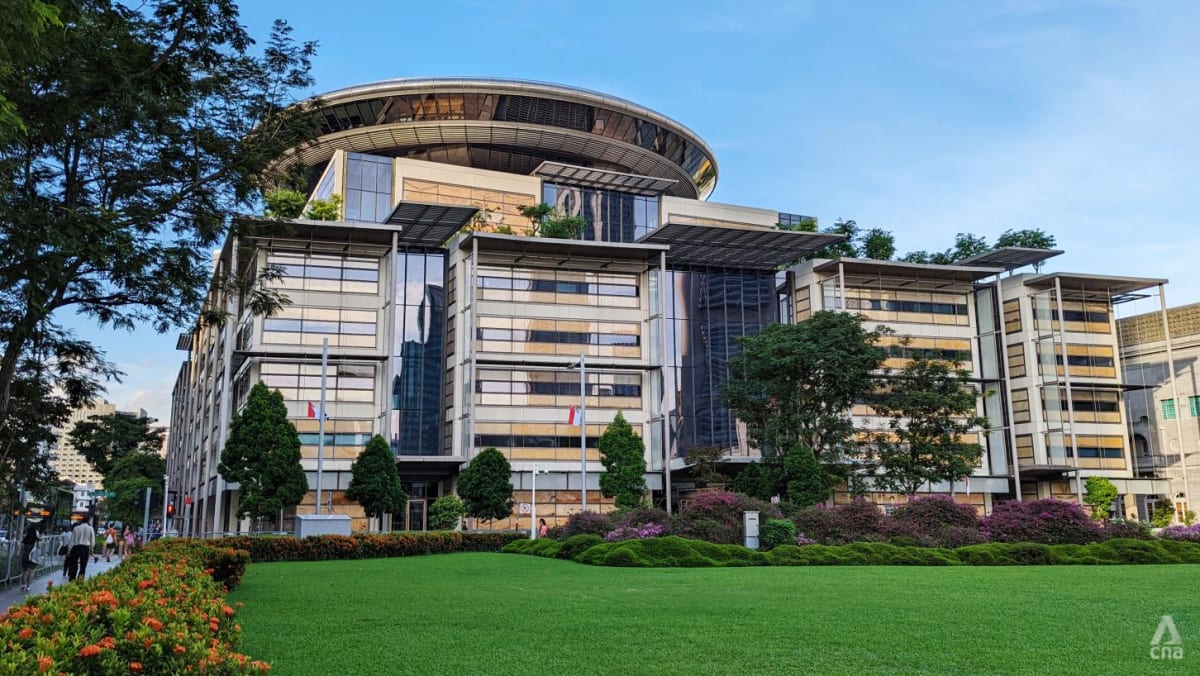
SINGAPORE: A man is accused of murdering his five-year-old daughter after months of ill-treating her by keeping her in a toilet with her younger brother, in what the prosecution called “squalid conditions”.
The 43-year-old man cannot be named due to gag orders protecting the victim’s identity and her surviving brother, who might be a witness for other charges the man faces.
The accused went on trial on Wednesday (Jul 5) for the charge of murder under Section 300(c), which is punishable by death or life imprisonment with caning.
He faces another 25 charges for offences including ill-treating his daughter and son by confining them in a toilet for about 10 months and punching his son when he was two years old, but these charges have been stood down temporarily while he is tried for murder.
According to the prosecution’s opening address, the deceased girl and her brother are the children of the accused from his first marriage.
After his divorce, the man married for a second time. His new wife had a daughter of her own from a previous marriage.
In 2014, the man’s two biological children were placed in foster care by the Child Protective Service.
However, the kids were returned to the accused’s custody sometime in 2015 and lived in a rented one-room flat with the accused and his new wife.
At the time of the offences, the accused’s new wife had borne him another daughter, so the man’s two biological children had two stepsiblings.
PROSECUTION’S CASE
According to the prosecution’s case, the accused intended to put his two biological children up for fostering or adoption.
In 2015, he began assaulting the girl and her brother, said Deputy Public Prosecutor Han Ming Kuang.
In the months leading up to her death, the girl and her brother lived in squalid living conditions, first confined in a corner of the flat near a window where they spent most of the day.
They were later shifted to the toilet, where they were confined “practically naked”, said Mr Han.
“Their nights were spent sleeping in the toilet. In the day, they were let out for meals, or when the accused or the accused’s wife needed to use the toilet,” he added.
The couple installed a closed-circuit television camera capturing the view of the toilet so they could monitor the girl and her brother.
On the night of Aug 10, 2017, the accused’s wife tried to get her stepdaughter to exercise, but she refused.
The accused decided to “handle the situation” and went to the toilet, where he physically assaulted her on her head and face between 9pm on Aug 10, 2017 and the early morning of Aug 11, 2017, alleged Mr Han.
At around 7pm on Aug 11, 2017, the accused realised that his daughter had died, said the prosecution.
The prosecution team said the accused took his daughter’s lifeless body to Singapore General Hospital more than 15 hours after discovering her death.
In the meantime, he allegedly packed and threw away items linked to her death, including a camera that covered the toilet area, a phone, scissors, a cane, a rubber hose, bath towels and child safety gates.
He also cleaned up the flat, washed the dead girl, dressed her and placed her in a pram. He allegedly arranged with his wife to tell the police that his two kids had not been in the flat, but were instead at his mother’s flat.
He finally took his daughter’s body to Singapore General Hospital on the morning of Aug 12, 2017.
“She was severely malnourished and covered head to toe in bruises, abrasions, wounds and scars,” said Mr Han.
The girl was in cardiac arrest, with no spontaneous breathing or pulse.
Resuscitation efforts were futile. An autopsy found that she had died of a head injury that was sufficient to cause death and that was likely a result of blunt force trauma from multiple blows.
The accused was assessed at the Institute of Mental Health and found to be not suffering from any mental disorder at the time of the alleged offence.
He allegedly lied to the police in multiple statements, claiming that the girl had died after hitting her head on a slide.
ACCUSED’S WIFE TAKES THE STAND
The first prosecution witness to take the stand was the accused’s wife. The 32-year-old Pizza Hut rider told the court that she was in the midst of divorcing the accused.
Questioned by Deputy Public Prosecutor Norine Tan about how she felt when the deceased and her brother returned to live with her and her husband in 2015, the woman said: “I don’t feel anything.”
Probed about this, she said: “Before the marriage, I have told (the accused) that he will take care of his own kids, and I will take care of my own kid.”
She said the deceased and her brother did not attend school, but her own two daughters did.
Asked why, the woman said there was no placement for them, and the school “did not reply”.
She said her husband usually fed his own kids and showered them. On questioning by Ms Tan, the accused’s wife said her two daughters were of “normal” size while the deceased and her brother were skinny.
“Why were they skinny?” asked Ms Tan.
“They were not given enough food,” the woman answered.
“Who did not give them enough food?” pressed Ms Tan.
“Both of us,” answered the accused’s wife.
She said she was mostly at her mother’s house as her mother was a stroke patient, while her husband would be working. She said he would be the one who went home to feed his own kids as he worked nearby.
The prosecutor asked the accused’s wife why there was a difference in how she treated her husband’s kids versus her own.
The woman closed her eyes before answering: “I don’t have the feeling of them being my kids. I… easy to say, is, I can’t accept other kids as my own kids, even after marriage.”
“The feeling as a mother; I don’t have it for other kids,” she added.
The trial continues, with the accused’s wife expected to be on the stand again on Thursday.
The accused is defended by lawyers Mervyn Cheong, Mr Krishna Sharma and Ms Lim Yi Zheng.
At least S$12 million lost in fake friend call scams since January; new variant involving Android malware
SINGAPORE: At least S$12 million (US$8.9 million) has been lost in fake friend call scams since January 2023, the police said on Wednesday (Jul 5), warning of a new variant involving malicious Android links. At least 3,700 victims have fallen prey to such scams since the beginning of the year.Continue Reading
Government may allow SingPost to raise postage rates in order to remain viable

‘MINDFUL’ OF JOBS BEING AFFECTED
Mr Seah then asked how the government will ensure that SingPost’s service quality does not fall, what the postal rate adjustments would look like, and how the government will preserve the jobs of Singaporeans who work for SingPost.
Mr Tan said that the government is “mindful” of the last point, and that regular conversations also take place between SingPost and the unions representing postal employees.
IMDA will continue ensuring SingPost keeps up and complies with its quality of service, given that a quality of service framework is in place. As SingPost is a listed company, it will have to undertake several reviews along with IMDA “as part of regular discussions”, Mr Tan added.
“I will just assure that … the context of the costs, overheads; context of the postal rate adjustments; context of the declining volume and the operating environment, will be considered as part of these discussions,” he said.
In relation to the service quality framework, Mr Leon Perera (Workers’ Party-Aljunied) asked if there are periodic customer satisfaction surveys conducted for SingPost, and if the government will discuss the findings and hold SingPost accountable to them.
Mr Tan responded that the framework looks at the service level agreement between the licensee and its customers, including how it delivers basic postal mail.
“These are issues that have been around for many, many years and is something that is continually refined to make sure that it meets the needs of the consumers in Singapore, and so meets the needs of the licensees,” he added.
“These are things that we benchmark across the rest of the world.”
Mr Louis Chua (WP-Sengkang) asked what happens if SingPost is unable or unwilling to carry out its obligations due to constraints.
Mr Tan said that IMDA imposes certain conditions – including quality of service – as part of SingPost’s licence.
Mr Chua also noted SingPost’s recent announcement that it is reviewing the commercial sustainability of the domestic postal business. He asked if discussions between IMDA and SingPost involve direct subsidising or funding of SingPost in relation to this.
In response, Mr Tan reiterated that since SingPost is publicly listed, it has its own set of governance rules around its financial statements.
“I will not touch on that because it’s under the remit of the board and management of the company, but I just want to point out that even in its most recent financial statements to its shareholders, the overall company is profitable,” he added.
Negotiator killed, militant shot dead in far South

PATTANI: An armed militant was shot dead and a woman detained by security forces during a clash in Khok Pho district in which a local official helping with negotiations was also killed.
A 50-strong government force surrounded a house at Khuan Lamae village in tambon Na Ket around 2am on Tuesday on information that insurgens believed involved in the recent fatal shooting of a policeman in Khok Pho district were hiding there.
During the operation on Tuesday gunshots were fired from the house, killing assistant village chief Armakosee Hayeeloh.
Authorities had called in local leaders to help persuade those inside the house to surrender. They responded with gun fire. Armakosee was slain,
Security forces fired back at the house. When the shooting stopped they entered the house and found one man, identified later as Sakareeya Sa-i, 35, had been shot dead. Two guns, including an M16 rifle, were found in the house.
A 24-year-old woman who was also in the house was detained for questioning.
Police said Sakareeya had a crimnal record and was wanted on five arrest warrants in security cases. He was also a suspect in the death of Pol L/Cpl Pichak Buakaew, 22, shot dead near a railway crossing last month.
On Wednesday morning, Col Poramet Sanuphong, commander of the 43rd military ranger unit, visited the family of the assistant village head killed during the operation to oiffer assistance and condolences.

